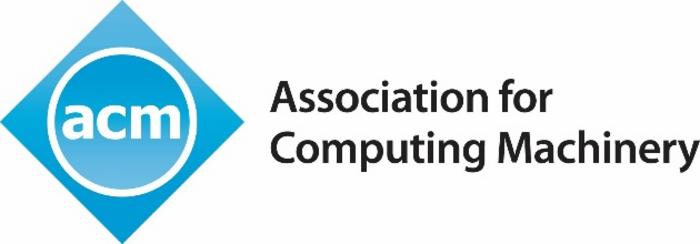The Association for Computing Machinery’s US Technology Policy Committee (USTPC) has released a Statement in Support of Mandatory Comprehensive Digital Accessibility Regulations. The US Department of Justice recently updated the Americans with Disabilities Act (ADA), a civil rights law that prohibits discrimination based on disability, with requirements for the accessibility of web content and mobile applications. The aim of the revision to the ADA is to ensure that services, programs and activities provided by state and local governments online and through mobile apps are accessible to people with disabilities.

Credit: The Statement notes that computing technologies, and the access to information, programs, and services that they afford (including the World Wide Web), are foundational in contemporary society, impacting how we work, learn, and interact.
The Association for Computing Machinery’s US Technology Policy Committee (USTPC) has released a Statement in Support of Mandatory Comprehensive Digital Accessibility Regulations. The US Department of Justice recently updated the Americans with Disabilities Act (ADA), a civil rights law that prohibits discrimination based on disability, with requirements for the accessibility of web content and mobile applications. The aim of the revision to the ADA is to ensure that services, programs and activities provided by state and local governments online and through mobile apps are accessible to people with disabilities.
While the ADA was first passed in 1990, the call for greater digital accessibility reflects how essential computing has become to daily life. The Statement notes that computing technologies, and the access to information, programs, and services that they afford (including the World Wide Web), are foundational in contemporary society, impacting how we work, learn, and interact. As a backdrop for the USTPC Statement, the authors also note that, according to Centers for Disease Control and Prevention, approximately 66 million adults comprising 27% of the US population experience disability.
In supporting efforts to make accessibility regulations mandatory and comprehensive, the ACM USTPC Statement notes that currently, sufficient detailed digital accessibility requirements are not statutorily mandated across all entities and sectors—and that existing laws and policies are inherently inadequate in scope and enforceability to fully meet the needs and assure the rights of Americans with disabilities in the digital environment.
“In our Code of Ethics and Professional Conduct, ACM recognizes the responsibility of computing professionals to contribute to a fair and equitable society and avoid causing harm,” explained Sarah Horton, UX and Accessibility Strategy Lead, Harvard University and co-lead author of the new USTPC Statement. “In today’s world, being able to effectively use technologies like the web and mobile apps is critical for personal and professional life. A lack of accessibility in the digital world is discriminatory and potentially harmful to disabled people. One reason sites and apps are not accessible is that digital creators don’t have adequate guidance on when and how to do accessibility. That’s why the USTPC accessibility subcommittee has supported recent efforts by the DoJ to establish Title II regulations for web and mobile accessibility — to explicitly define the when and the how through regulations and standards. But we know that’s not enough. State and local governments can’t achieve accessibility on their own, and there’s far more to digital equality than is covered under Title II. So we developed the Statement in Support of Mandatory Comprehensive Digital Accessibility Regulations to make it clear that we, as a society of computing professionals, welcome standards and regulations across the board. They provide a framework for digital accessibility professionalism, to better meet our legal and ethical obligations.”
“It’s important to note that there are existing standards, regulations and laws aimed at giving people with disabilities access to digital technologies,” added Mark Greenfield, Campus Web Accessibility Officer (retired), University at Buffalo and co-lead author of the new USTPC Statement. “The challenge has been that these standards have been inconsistently applied. As a consequence, various courts have disagreed as to what constitutes accessibility. So, first and foremost, the USTPC Statement recommends enacting a single, consistent standard that will provide clarity and reduce misunderstandings as to what is required to provide an inclusive digital experience.”
In addition to Horton and Greenfield, the Statement in Support of Mandatory Comprehensive Digital Accessibility Regulations was written with contributions from UTSPC Accessibility Subcommittee Chair John Murray, as well as Committee members Jacob Abbott, Vint Cerf, Shiri Dori-Hacohen, Ari Schlesinger, and Peter Smith. The Committee also thanks subject matter experts David Sloan, Vicki Hanson, and Kristen Shinohara for their reviews and input.
About the ACM US Technology Policy Committee
ACM’s US Technology Policy Committee (USTPC) serves as the focal point for ACM’s interaction with all branches of the US government, the computing community, and the public on policy matters related to information technology. The Committee regularly educates and informs Congress, the Administration, and the courts about significant developments in the computing field and how those developments affect public policy in the United States.
About ACM
ACM, the Association for Computing Machinery, is the world’s largest educational and scientific computing society, uniting computing educators, researchers, and professionals to inspire dialogue, share resources, and address the field’s challenges. ACM strengthens the computing profession’s collective voice through strong leadership, promotion of the highest standards, and recognition of technical excellence. ACM supports the professional growth of its members by providing opportunities for life-long learning, career development, and professional networking.
###



